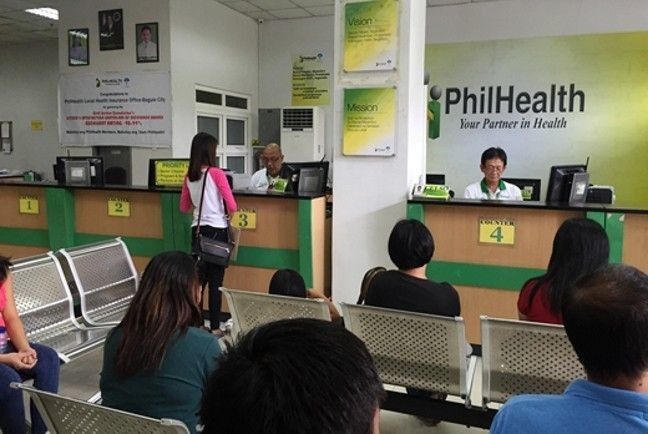Commentary: Corruption is an old challenge in a new context

Transparency International-Philippines celebrated its 25th anniversary last week and reminded us of the importance of the continuing fight against the abuse of entrusted power for private gain. The fact that this celebration was held virtually and not in a public gathering also reminds us how much we have had to adapt to the challenges hurled upon us by the COVID-19 pandemic.
According to a U4 Anti-Corruption Resource Centre report presented at the virtual discussion organized but Stratbase ADR Institute in partnership with TI- Philippines, corruption in the time of COVID-19 is a “double-threat” for low-income countries.
Based on the report, “throughout March 2020, there has already been a wave of corruption-related incidents, decreasing transparency and accountability, as well as manipulative political propaganda from all over the world.”
Studying cases from Europe, North America, Asia and Africa, the report noted that “responses to COVID-19 have seen breaches of anti-corruption standards such as cutting corners in procurement processes, or persons in power taking advantage of the crisis to increase their private benefits.”
Citing experiences from the 2013–2016 West African Ebola outbreak, the report also points out that “traditional anti-corruption policies are insufficient in situations of outbreak response.”
The said report did not cover the Philippines; however, it is not hard to imagine what sort of concerns the report would have raised if it were. Without a doubt, the whistle-blower accounts of top-officials of PhilHealth, the primary government agency providing health insurance and funding for Covid-19 testing, committing fraud of “pandemic proportions” would have made it in.
The report might also include the growing concern that corruption and lack of transparency in public spending are affecting the government’s ability to respond to the crisis adequately.
When the Bayanihan to Heal as One Act was passed into law back in March, it granted sweeping powers to President Rodrigo Duterte. These powers included the ability to reallocate, realign, and reprogram P275 billion to fund the government’s pandemic response programs.
This law included the “largest and widest social protection program in the country’s history,” with P200 billion allotted to provide cash aid to vulnerable sectors. But, as Sen. Ralph Recto recently pointed out, the Department of Social Welfare and Development reported months ago that it had already downloaded the bulk of if funds for the social amelioration program to Local Government Units, but then hid the fact that there were delays in the actual payout to beneficiaries.
The Philippine government, despite these emergency powers, was not able to stop the country from becoming Southeast Asia’s hotspot for COVID-19, now with over 200,000 cases, and with no sign of slowing down.
Despite the inefficiencies and lack of transparency in the implementation of the Bayanihan to Heal as One Act, its follow-up law, the Bayanihan 2 bill, plans to allocate an additional P165 billion for the government’s pandemic response program. This law would again allocate billions for cash subsidies for the poor and the procurement of safety gear for healthcare workers.
The amount of public funds involved is no joke, especially when you consider the P203-billion Universal Health Care fund in the proposed 2021 National Budget for PhilHealth, the hiring of health professionals, construction of health facilities, and procurement of Personal Protective Equipment. The proposed budget has already been submitted to Congress, where deliberations will start soon.
The wide-spread concern regarding the use of public funds has even lead the president vowing to look into any anomalies in the used on pandemic-related funds, saying that he would hold himself responsible for this “sole and solemn duty of answering for and in behalf of the executive department of all the funds that were spent in the fight against COVID.”
In the same briefing, the Department of Finance Secretary Carlos Dominguez also added that his department is pushing for the digitalization of the government’s cash aid programs to prevent corruption in the distribution of subsidies to target beneficiaries.
The push for digitization in government’s cash aid and other programs would indeed be a big step towards increasing transparency and reducing corruption. According, again, to the U4 Anti-corruption Resource Center, digitization and e-governance “can be an effective tool to detect corruption, given its ability to trace a work process. It can establish whether or not procedures are performed based on established rules and regulations. If anomalies arise, e-governance can usually detect them.“
With the focus on health and economic challenges, transparency and accountability have fallen to the wayside and, in the process has created more opportunities for corruption. With traditional anti-corruption policies insufficient in this new context of the pandemic, we must turn to innovative solutions to fight corruption and uphold the public’s interest.
It is only appropriate that priorities are starting to shift towards long-delayed digital infrastructures that will deliver these transformative technologies to our government. In this time of social distancing, e-learning, and working-from-home, it is also fitting that we turn to digitization and e-governance as tools to promote transparency and accountability in government.
Unlike the coronavirus, corruption is by no means novel, but the pandemic has created a new opportunity for it to thrive. We, too, must adapt and re-think the ways we fight it.
Paco Pangalangan is executive director of think tank Stratbase ADR Institute.
- Latest





























